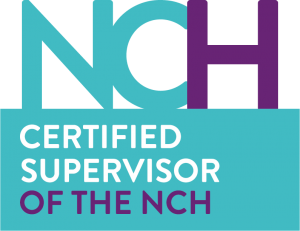Navigating Social Situations When You Stop Drinking: Earning Respect and Staying Firm

Deciding to quit drinking alcohol is a powerful choice, one that can significantly impact your physical health, mental well-being, and overall quality of life. It’s a decision that often leads to profound positive changes, but it also comes with its own unique challenges, especially in social settings. If you’ve recently stopped drinking, perhaps in GOSOBER, or are considering it, you might be worried about how others will react.
In my experience as a hypnotherapist, I’ve found that when you tell people you don’t drink, most people respect that decision, especially if they are close to you. While you may occasionally encounter a pushback or awkward question, being direct and confident about your choice can help you navigate these moments without unnecessary stress. Today, I’d like to share a little insight into how to handle these social dynamics, drawing from both personal experience and inspiration from an article by Rob Temple, which explored common responses to this lifestyle change.
Owning Your Decision
First, it’s essential to remember that your decision to stop drinking is entirely your own. Whether you're doing it to support your physical health, mental clarity, personal goals, or simply because alcohol no longer serves you, it’s a decision that deserves respect.
In social situations, I’ve personally found that a simple and straightforward approach works best. Saying “I don’t drink” is often enough. In most cases, people move on without much fuss, sometimes they might even admire your choice, and you might find others quietly admitting they wish they could do the same!
This directness tends to set a clear boundary. It doesn’t leave room for debate or speculation, and it sends the message that this is a non-negotiable part of who you are. Confidence is key here; when you present your choice without hesitation, others are less likely to challenge it.
Handling Common Questions with Grace
That said, not everyone will drop the subject without asking a question or making a comment. In his article, Rob Temple shared some of the typical responses he receives when he tells people he doesn’t drink, and they are all too relatable. Comments like “Just one won’t hurt,” or “Why don’t you drink?” come up often. These responses may stem from curiosity, discomfort, or simply a lack of understanding.
Instead of getting defensive or feeling pressured, having a few gentle but firm responses in your toolkit can be helpful. Here are some examples, inspired by Rob Temple's suggestions:
- “Just one won’t hurt.”
- A good response might be: “Actually, one isn’t worth it to me—I feel much better without it.” This kind of reply acknowledges the person’s point of view but also reinforces your boundary in a polite manner.
- “Why don’t you drink?”
- Sometimes people are genuinely curious, but this question can feel a little intrusive. A simple, non-specific response like “I just feel better without it” or “It’s a personal choice that works for me” tends to do the trick. It keeps the conversation light without inviting more probing questions.
- “I could never do that.”
- This is a response I’ve heard many times, and it’s an interesting one because it reveals more about the other person than about you. A good reply might be: “I used to think that too, but now I can’t imagine going back.” It’s a supportive way of showing that change is possible, without being pushy or judgmental.
The Social Aspect: Taking Control Without Isolation
One of the trickiest aspects of quitting drinking is managing the social side of it. Drinking is deeply ingrained in our culture, social gatherings, celebrations, and even casual meetups often revolve around alcohol. However, taking control of your drinking means more than just choosing not to drink; it means being proactive about how you want to engage socially.
Instead of avoiding situations that involve alcohol altogether, consider reframing your approach:
- Bring Your Own Alternative: Whether it’s sparkling water with lime, a non-alcoholic beer(I enjoy Heineken 0.0), or a fancy mocktail, having a drink in hand can often reduce the awkwardness that might come with being the only one not drinking. It’s a subtle way of fitting in without compromising your choices.
- Be Honest, But Light: If someone presses you about why you’re not drinking, staying honest but light can keep the conversation comfortable. “I just feel great without it” is honest, yet positive, and usually doesn’t invite much more interrogation.
- Shift the Focus: If you sense a line of questioning or pressure that makes you uncomfortable, it’s okay to gently shift the focus. Asking others about their lives or interests can smoothly pivot the conversation away from your personal choices.
Respecting Your Journey
It's worth noting that people’s reactions to your decision not to drink have more to do with them than with you. Sometimes, your choice may make them feel a little defensive about their own habits, even if that’s not your intention. Others might just be genuinely curious, or perhaps they’ve rarely met someone who chooses not to drink and don’t know what to say. Whatever the reaction, maintaining control means not letting others’ discomfort dictate your actions.
There’s a beautiful empowerment that comes from taking control of your own narrative. Choosing not to drink is a powerful step in reclaiming your autonomy and deciding what’s best for your mind and body. The respect of others is nice to have, but it’s the respect you cultivate for yourself that truly matters.
A Journey of Self-Discovery
Ultimately, quitting alcohol isn’t just about refusing alcohol, it’s about discovering what’s possible when you free yourself from a substance that no longer serves you. It’s about finding new joys, new ways of relaxing, and new ways of connecting with the people around you. Yes, some people may question or push back against your decision, but often, you’ll find that people respect your boundaries if you present them confidently.
Remember, every time you navigate these social situations without giving in to pressure, you reinforce your own strength and your commitment to a life that aligns with your true values. And that’s something truly worth raising a (non-alcoholic) glass to.
About the Author
Dr. Iain Lightfoot, is a hypnotherapist and coach based in Southampton, specialising in helping people overcome addictions, break habits, and regain control of their lives. With a blend of coaching, NLP, and hypnotherapy, he supports clients through powerful transformations that aren't just about change, they’re about creating a life aligned with their values. Iain is also an academic, a paranormal investigator, a runner, and someone who believes that change, no matter how intimidating, can be the most empowering journey of all.
#Hypnotherapy #Coaching #AddictionRecovery #PositiveChange #ParanormalInvestigator #SouthamptonHypnotherapist #MindsetTransformation





